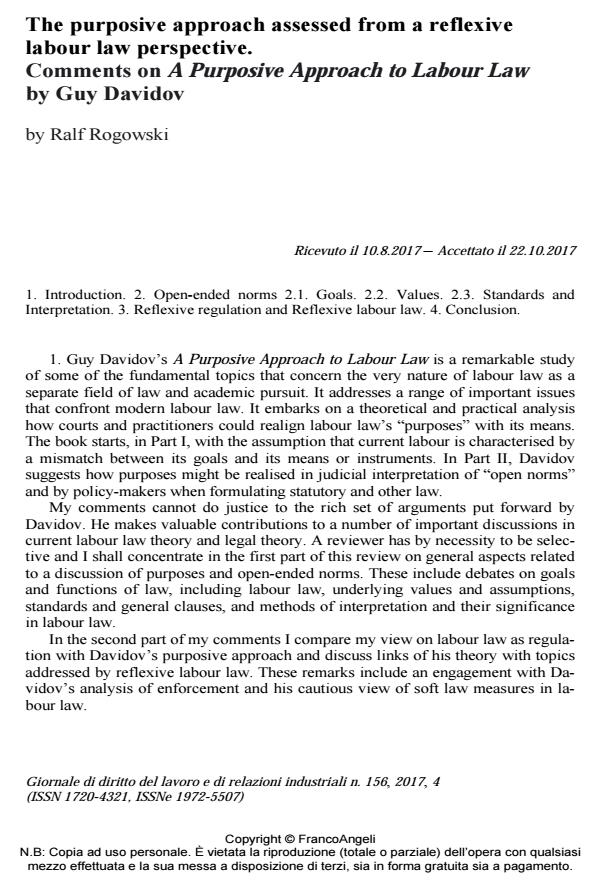The purposive approach assessed from a reflexive labour law perspective. Comments on A Purposive Approach to Labour Law by Guy Davidov
Titolo Rivista GIORNALE DI DIRITTO DEL LAVORO E DI RELAZIONI INDUSTRIALI
Autori/Curatori Ralf Rogowski
Anno di pubblicazione 2017 Fascicolo 2017/156
Lingua Inglese Numero pagine 7 P. 773-779 Dimensione file 203 KB
DOI 10.3280/GDL2017-156008
Il DOI è il codice a barre della proprietà intellettuale: per saperne di più
clicca qui
Qui sotto puoi vedere in anteprima la prima pagina di questo articolo.
Se questo articolo ti interessa, lo puoi acquistare (e scaricare in formato pdf) seguendo le facili indicazioni per acquistare il download credit. Acquista Download Credits per scaricare questo Articolo in formato PDF

FrancoAngeli è membro della Publishers International Linking Association, Inc (PILA), associazione indipendente e non profit per facilitare (attraverso i servizi tecnologici implementati da CrossRef.org) l’accesso degli studiosi ai contenuti digitali nelle pubblicazioni professionali e scientifiche.
- A qualitative study on the unresolved problem of female genital mutilations, socio-cultural reasons, and policy issues in the Afar regions of Ethiopia Habtamu Wondimu, Girum Melkamu, Kassahun Dejene, in Cogent Public Health 2205706/2023
DOI: 10.1080/27707571.2023.2205706
Ralf Rogowski, The purposive approach assessed from a reflexive labour law perspective. Comments on A Purposive Approach to Labour Law by Guy Davidov in "GIORNALE DI DIRITTO DEL LAVORO E DI RELAZIONI INDUSTRIALI " 156/2017, pp 773-779, DOI: 10.3280/GDL2017-156008